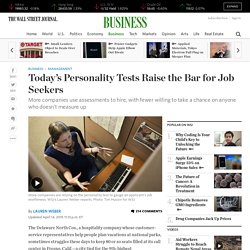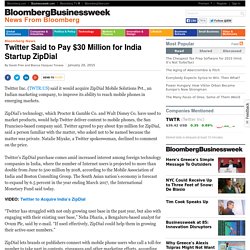

kyle barone
Why You Need Emotional Intelligence to Succeed When emotional intelligence first appeared to the masses, it served as the missing link in a peculiar finding: people with average IQs outperform those with the highest IQs 70 percent of the time.

This anomaly threw a massive wrench into what many people had always assumed was the sole source of success -- IQ. Decades of research now point to emotional intelligence as the critical factor that sets star performers apart from the rest of the pack. Emotional Intelligence is the "something" in each of us that is a bit intangible. It affects how we manage behavior, navigate social complexities, and make personal decisions that achieve positive results. Emotional intelligence is made up of four core skills that pair up under two primary competencies: personal competence and social competence. Personal competence comprises your self-awareness and self-management skills, which focus more on you individually than on your interactions with other people. Emotional Intelligence Predicts Performance. Why Emotional Intelligence Matters in the Workplace. (Photo Credit: Utomo Hendra Saputra/Unsplash) Daniel Goleman, a psychologist and former New York Times reporter, wrote a book on the subject called Emotional Intelligence: Why It Can Matter More Than IQ.

Goleman says he first came across the idea in an article in a small, academic journal written by two psychologists, John Mayer, now at the University of New Hampshire, and Peter Salovey at Yale. Today’s Personality Tests Raise the Bar for Job Seekers. The Delaware North Cos., a hospitality company whose customer-service representatives help people plan vacations at national parks, sometimes struggles these days to keep 80 or so seats filled at its call center in Fresno, Calif.

—a city tied for the 9th-highest unemployment rate in the U.S. Executive Dialogue: Leadership Development. As hospitals and health systems navigate the transformation from volume to value, it’s critical that they have the skill sets and leadership capabilities to move the organization forward.

Human resources and executive leadership are pressed to identify capability gaps within the organization and find ways to develop and expand the roles of current employees, as well as identify the necessary outside talent to help the organization achieve its strategic objectives. Health Forum convened a panel of health care executives and industry experts Nov. 12 in Chicago to discuss how hospitals and health systems can succeed in building the workforce of the future. How Can We Analyze Corporate’s Effect on Employees? Dear Measuring Stick: Your interest in considering behavior and culture in relation to change management initiative should be applauded.

Many such initiatives fail because organizations don’t pay attention to the need to align those interconnected concepts. After all, a change management initiative is a realignment of the organizational structure (vision, objectives, systems, processes), the organization’s internal environment (leadership, culture, behaviors) and the external environment (competition, technology, innovation). Many authors have defined organizational culture as the sum of the behaviors of all employees. Why the automotive industry's good times could end in a crash. It’s seemingly a new golden age for gearheads — between cars like the Ford GT and Acura NSX basking in the spotlight at the 2015 Detroit auto Show, and the 707-horsepower Dodge Challenger Hellcat selling briskly.

With the revival of General Motors and Chrysler from the brink (albeit, at an $11 billion cost to taxpayers), the recession in 2008 is fading as a distant memory. Yet underneath all the fanfare of a recovery, the automotive industry isn’t as healthy as it seems, and could get a lot worse. Ridiculous click bait you may say, citing how companies like Honda posted all-time annual sales records in 2014, or how oil prices threaten to drop down to $40 a barrel. The professional forecasters expect U.S. auto sales to hit 17 million this year, a near-record level.
Yet dig into the data though and a more ominous picture emerges — here are five points why: Year-over-year wage change in hourly earnings of all U.S. employees (Chart: New York Times; Source: Bureau of Labor … It's Time For Roger Goodell To Resign As Commissioner Of The NFL. Twitter Said to Pay $30 Million for India Startup ZipDial.
Twitter Inc.

(TWTR:US) said it would acquire ZipDial Mobile Solutions Pvt., an Indian marketing company, to improve its ability to reach mobile phones in emerging markets. ZipDial’s technology, which Procter & Gamble Co. and Walt Disney Co. have used to market products, would help Twitter deliver content to mobile phones, the San Francisco-based company said. Twitter agreed to pay about $30 million for ZipDial, said a person familiar with the matter, who asked not to be named because the matter was private.
Natalie Miyake, a Twitter spokeswoman, declined to comment on the price. Twitter’s ZipDial purchase comes amid increased interest among foreign technology companies in India, where the number of Internet users is projected to more than double from June to 500 million by 2018, according to the Mobile Association of India and Boston Consulting Group. To contact the editors responsible for this story: Michael Tighe at mtighe4@bloomberg.net Brendan Scott, Suresh Seshadri. CSUCI MGT307-05 Class Collection.